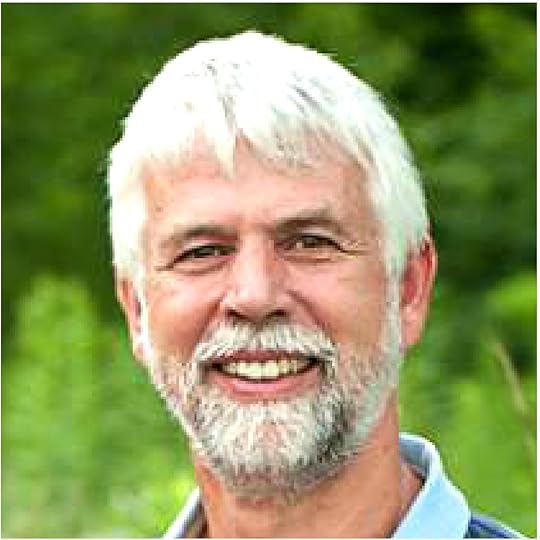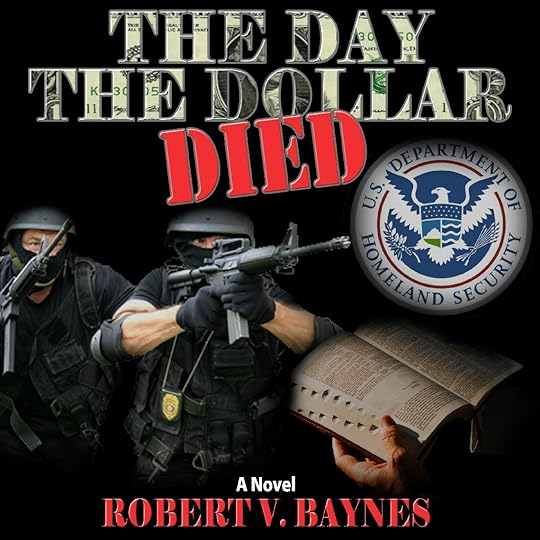Interview with Robert V Baynes, author of ‘The Day the Dollar Died’
 Robert V Baynes is concerned about the direction this country is headed. He wrote this first novel as a message to warn people of what could happen here if things continue as they are. In his spare time, he loves to spend time with his family. He also likes to vacation in new places, fish, read, garden and cook.
Robert V Baynes is concerned about the direction this country is headed. He wrote this first novel as a message to warn people of what could happen here if things continue as they are. In his spare time, he loves to spend time with his family. He also likes to vacation in new places, fish, read, garden and cook.Twitter / Facebook / Website / Amazon
Q: Congratulations on the release of your latest book, The Day the Dollar Died. To begin with, can you give us a brief summary of what the story is about and what compelled you to write it.
A: My book is the story of an ordinary farmer and how his life has been very good in this country. Then things begin to change as the financial foundations of this country start to crumble. The main character, John, struggles with what to do and eventually loses everything he has worked so hard to build. He ends up having to make some very difficult choices to try to save his family.
I chose to write this book because I wanted to warn people of some of the dangers I see coming to this country if we do not change the direction we are headed.
Q: What do you think makes a good political novel? Could you narrow it down to the three most important elements? Is it even possible to narrow it down?
A: I think one of the most important aspects of a political novel is that it gets a message across. I think the authors’ point of view should be fairly obvious. I also think it is important for the novel to speak to current events. If it is not about current problems, people do not feel compelled to read it. Third, I think a political novel should be fairly easy to understand.
There could be other aspects, but I think these are the three I would narrow it down to.
 Q: How did you go about plotting your story? Or did you discover it as you worked on the book?
Q: How did you go about plotting your story? Or did you discover it as you worked on the book?A: I knew the basic story line I wanted to go with when I started the book. However, much of the story came about as I wrote. I felt like I just saw the story unfold and I wrote it as I saw it.
Q: Tell us something interesting about your protagonist and how you developed him or her. Did you do any character interviews or sketches prior to the actual writing?
A: My protagonist came about as a mix between my personality, what I would like to be and just an ordinary farmer. I didn’t do a character sketch prior to writing, but I just wrote what I saw in my head.
Q: In the same light, how did you create your antagonist or villain? What steps did you take to make him or her realistic?
A: For the antagonist, I chose a character that has an almost opposite point of view as myself and then tried to picture why they would think that way. This was an interesting exercise to do.
Q: How did you keep your narrative exciting throughout the novel? Could you offer some practical, specific tips?
A:I tried to keep the narrative exciting by trying to make everything as realistic as possible. I always tried to think about how a person would realistically react in each situation. I also threw in a few twists.
For tips, I think some of the best writing is as realistic as possible and is descriptive enough that you could picture yourself there.
Q: Setting is also quite important and in many cases it becomes like a character itself. What tools of the trade did you use in your writing to bring the setting to life?
A: I tried to throw in cues about what the breeze was like or what the character might have heard. I tried to throw in subtle cues about the setting as the book went along.
Q: Did you know the theme(s) of your novel from the start or is this something you discovered after completing the first draft? Is this theme(s) recurrent in your other work?
A: I knew the basic theme of the novel from the beginning. I discovered many of the details as I wrote. I am currently working on my second novel and the theme is similar but changed.
Q: Where does craft end and art begin? Do you think editing can destroy the initial creative thrust of an author?
A:I think you need both art and craft to be a good book. They have to work together. A good job of editing would enhance rather than destroy the creative work of an author. A good edit, makes a book easier to read and understand.
Q: What three things, in your opinion, make a successful novelist?
A: First of all, they have to be someone who can tell a good story. They also have to be able to stick with one project for years or months until they can get a project finished and to market. Third, I think they have to be able to figure out how to publicize and market their work after that.
Q: A famous writer once wrote that being an author is like having to do homework for the rest of your life. What do you think about that?
A: That point of view certainly has a lot of merit. An author is also someone who gets to tell stories for a living. However, being an author does take a lot of work that is not always fuin.
Q: Are there any resources, books, workshops or sites about craft that you’ve found helpful during your writing career?
A:I can’t think of any resources I used to learn to write. I have been an avid reader all of my life, so I think that has helped me to be able to write.
Q: Is there anything else you’d like to share with my readers about the craft of writing?
A: Writing is like doing anything else. It take some work when you don’t feel like it and the more you do it and get good feedback, the better you can get at it.

No comments have been added yet.



